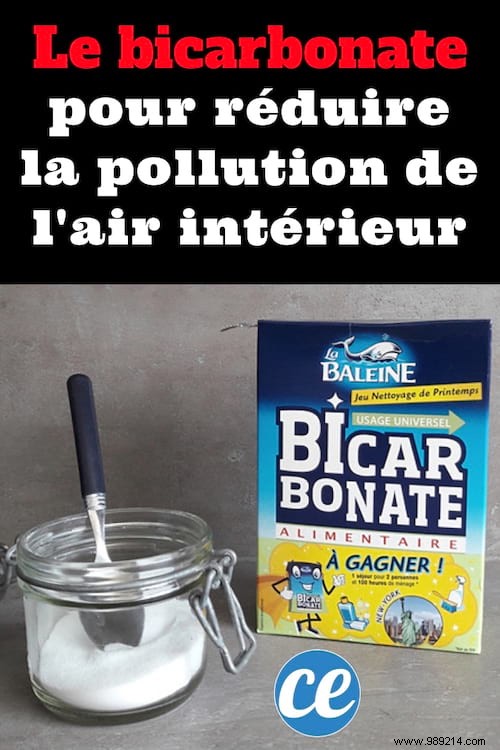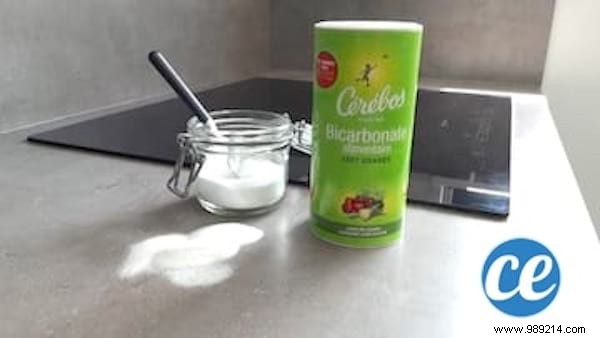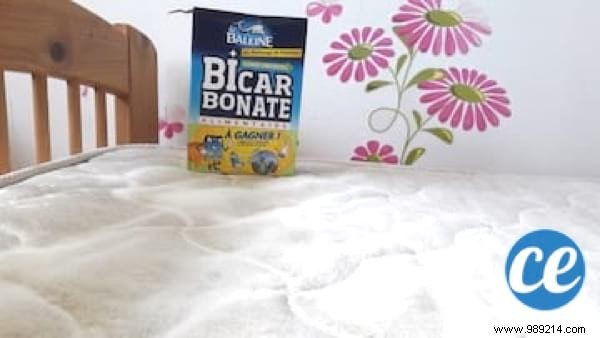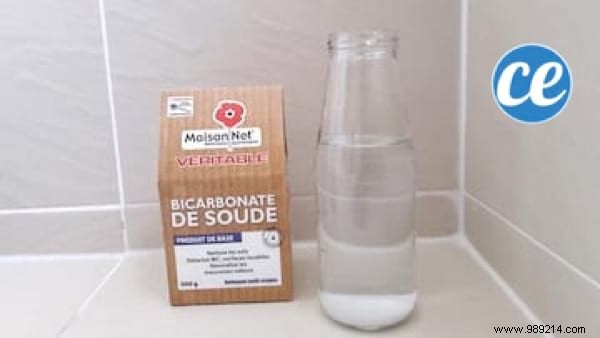
Did you know that pollution inside your home is more important than on the outside?
Sounds crazy, doesn't it? But yet, it is the reality!
This indoor pollution comes from household products, allergens and mold.
Against indoor pollution, you must ventilate your house at least 10 minutes a day by opening the windows wide, even in winter.
This makes it possible to completely renew the air and evacuate indoor pollution. But that's not all!
Bicarbonate is your best ally in the fight against indoor pollution in the house . Explanations:

Why is baking soda effective against indoor air pollution at home?
Because bicarbonate acts on 3 levels:
1. It replaces toxic household products.
2. It fights allergens at home.
3. It eliminates mold naturally.
Let's now see in detail how baking soda fights indoor pollution in the house:

Home cleaners and air fresheners that are supposed to make your home clean and shiny are actually loaded with additives, including preservatives.
To convince yourself of this, read our article here on the subject. All these products are sources of poisoning but also of respiratory allergies.
Moreover, some household products are as dangerous for the lungs as cigarettes.
It's downright scary... Not to mention that if you mix them, they can cause dangerous chemical reactions.
The solution is to replace all those toxic household products with bicarbonate which is 100% natural.
Bicarbonate allows you to clean everything, degrease everything and deodorize everything naturally.
Thanks to baking soda, all surfaces, including sanitary facilities, are nickel chrome! All this, with a single natural product that does not pollute indoor air.
When you use baking soda for cleaning, you limit air pollution. Why?
- Because bicarbonate does not contain additives or preservatives because it is a pure mineral. Microorganisms, such as bacteria or mold, do not grow there.
- Because bicarbonate does not evaporate into the atmosphere. Volatile chemicals, also called volatile organic compounds or VOCs, disperse throughout the home.
- Because bicarbonate is a natural and healthy product:in other words, it is not toxic. Did you know that bicarbonate is naturally present in the body? It is notably provided by the water we drink and the digestion of fruits.
- Because bicarbonate is not dangerous for health. There is no "danger" pictogram on the packages of baking soda unlike many other household products...

Dust mites are often responsible for allergies in the home.
These tiny little arachnids love to nest and grow on rugs, carpets and in mattresses.
Their favorite food is our dead skin... Yuck! But if they are harmful for some of us, it is because of the droppings and dust they produce.
These are the materials that irritate our airways and produce allergies.
Fortunately, there is a trick to get rid of it naturally. Just sprinkle baking soda on carpets, rugs and mattresses.
Put 20 g of baking soda per square meter of surface and brush to make the baking soda penetrate well into the fibres. Leave on for 4 hours and vacuum.
Bicarbonate will prevent the development of dust mites and therefore allergens. Check out the trick here.
Behind the many anti-mite products found on the market, there are quite simply neurotoxic insecticides of the pyrethroid class or organophosphates.
Their molecules don't just eliminate dust mites. They also spread throughout the house.
And we can imagine that breathing these molecules is not the best thing for our health!
The paradox is that they are less and less effective on dust mites...the latter becoming more and more resistant.
With bicarbonate, there is no risk of toxic fumes or the development of resistance in dust mites.

We don't teach you anything if we tell you that mold grows when there is humidity.
Bathrooms, poorly ventilated rooms or those where there is condensation are the favorite places for mold.
However, molds develop spores to reproduce and protect themselves by creating mycotoxins, molecules that can be very toxic.
Fortunately, baking soda can overcome these molds thanks to its fungicidal properties.
To get rid of mold, just put a teaspoon of baking soda in a liter of water and clean the infected surfaces with this mixture.
In fact, studies have shown that a concentration of 0.5% bicarbonate (i.e. 1 teaspoon of bicarbonate per liter of water) prevents the development of mold.
By putting 6 teaspoons in a liter of water (i.e. 3%), tests have shown that mold has no chance of growing.
Unlike other products, such as bleach, bicarbonate is a natural product, healthy and harmless to health or the environment.
As we have seen, it is not toxic, does not favor the development of resistance by molds and does not generate VOCs.
It is therefore the ideal solution!
If you have questions about indoor pollution, its origin and its consequences or if you wonder how to limit it, here is the Guide to indoor air pollution. Free to read.
You can find bicarbonate in supermarkets, organic groceries or even here on the Internet.